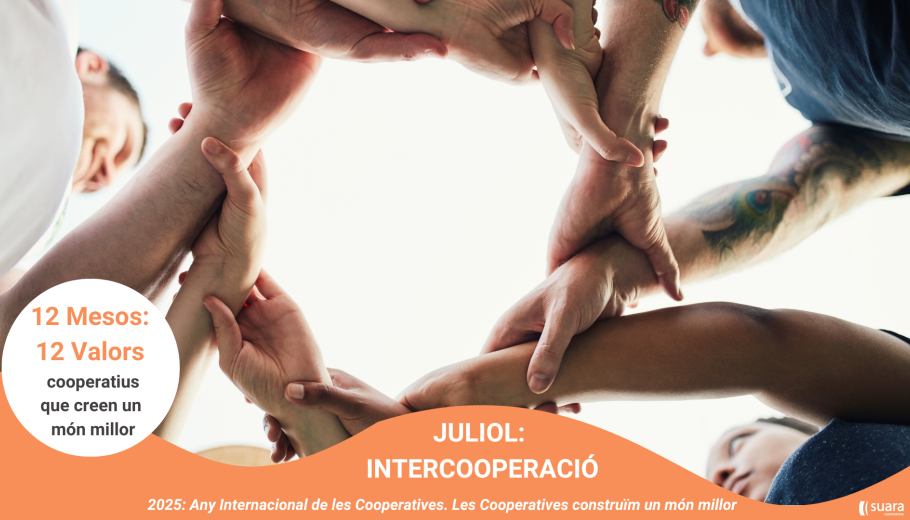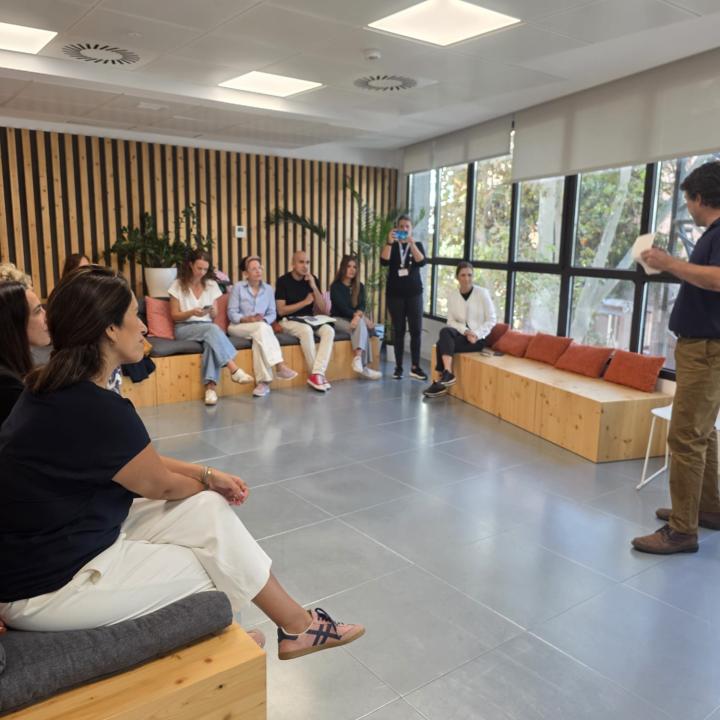From cooperativism, we join forces in the search for answers to current problems to guarantee social transformation and social cohesion.
This July 5th we celebrated the International Day of Cooperatives in a very emblematic year, since UNESCO has declared 2025 the International Year of Cooperatives for our capacity to build a better world. Just a year ago, in Catalonia, we celebrated 125 years of organized cooperativism.
Precisely, one of the keys to the success of cooperativism is our capacity to organize ourselves to weave alliances and to intercooperate with the desire to provide answers to the main social challenges. At the center of our activity we put the lives of both people and the planet, with the aim of achieving a social transformation that leads us towards more just, equitable and sustainable societies.
However, we are aware that it is a challenge that we cannot do alone, nor do we want to. If we work for people, we want to do it from the territory, promoting social cohesion and community action and involving all the agents of that territory.
The DNA of intercooperation, in fact, has been there since the beginnings of Suara, since it was born from the merger of three cooperatives that allied to be stronger in the face of the economic crisis. However, this expertise has also led us to weave other alliances and intercooperations.
A model that has been recognized by the Generalitat
This way of working has been recognized by the Generalitat. Just a year ago, for the work carried out from the Social Digital Lab, our social innovation laboratory, Suara Cooperativa received the Catalonia Exponential Leader'24 seal from ACCIÓ, which accredits us as a leading company in disruptive technology.
In this context, Mireia Fageda, senior consultant in the disruption team at ACCIÓ, explains that one of the reasons why Suara Cooperativa was awarded this recognition is for its ability to “collaborate with the entire ecosystem such as universities, research institutes or other companies to gain more knowledge”.
In the Social Digital Lab we work with the quadruple helix methodology through which we enable spaces for co-creation and inter-cooperation between companies, startups, universities, research institutes, public administration, citizens, people served and workers to jointly explore, design, develop and implement innovative solutions to the main social challenges.
This, explains Jordi Picas, innovation director at Suara Cooperativa, has allowed: to co-create solutions with high social and technological impact, where the expertise of each actor is integrated; Weave strategic and stable alliances with cooperatives, startups, technology centers and public entities, among others, with whom we share the desire to innovate from the purpose and social value; Promote European projects and country initiatives with a systemic and transformative perspective, which start from the real needs of the territories; as well as, build a living ecosystem of innovation based on trust, co-responsibility and the shared desire to generate sustainable changes.
“Intercooperation is essential to respond to the great social challenges of our time, especially in the field of social innovation. This is why we are established as a Living Lab, working from the quadruple helix, and promoting active collaboration. Intercooperation is not just a work strategy, but the key to our innovation model: a way of addressing complexity with collective intelligence, cooperative values and real social impact”, highlights Picas.
Intercooperate to improve employment
Although these alliances were not yet very common, 10 years ago we joined Fundació Ires and Fundació Surt to give life to Intermedia, an entity dedicated to promoting employment, socio-labor insertion and professional improvement of people, especially those who are in a situation of vulnerability. One of its key elements is the process of empowering people while generating links with companies from a social responsibility perspective.
“Intermedia was born from this intercooperation and this collaborative vocation, which is part of our DNA and is evident in our day-to-day work: we work in a network with administrations, companies and other organizations in the third sector because we are convinced that quality job placement is only possible through shared commitment,” says Sònia Moragrega, general director of Intermèdia, who adds: “Alliances not only multiply the impact, but also provide solidity and sustainability in the long term. This is how we understand intercooperation: as an essential tool for building a fairer society.”
Alliances to promote education with cooperative values
However, this is not the only successful alliance we have had. We have also joined forces with Abacus Cooperativa and Escola Sant Gervasi Cooperativa to carry out the Creixen Educació project, a cooperative school model that reinforces the importance of educating with cooperative values.
Currently, we have infant, primary and secondary courses at Creixen Povill in Olesa de Montserrat, Creixen Terrassa and Creixen Goar in Viladecans. In addition, in the latter we offer Baccalaureate while in Terrassa we also have middle school courses. In all of them, we share an educational model where we put the child at the center to enhance their skills and educate them with cooperative values to form people of integrity, with a critical spirit and capable of developing their commitment to achieving a better society with creativity.
“Intercooperation at Creixen Educació is not just another strategy, but the foundation on which the project has been built. It is a tangible demonstration of how the sum of cooperative efforts can generate results much higher than those that would be obtained individually, creating economic and social value in a sustainable way”, says Marc Carbonell, Director of Suara's Client Area and Manager of Creixen Educació.
From cooperativism we are clear: in order to achieve social transformation and offer more solid responses, we cannot do it alone, we need to forge alliances that offer more robust solutions while promoting social cohesion.



